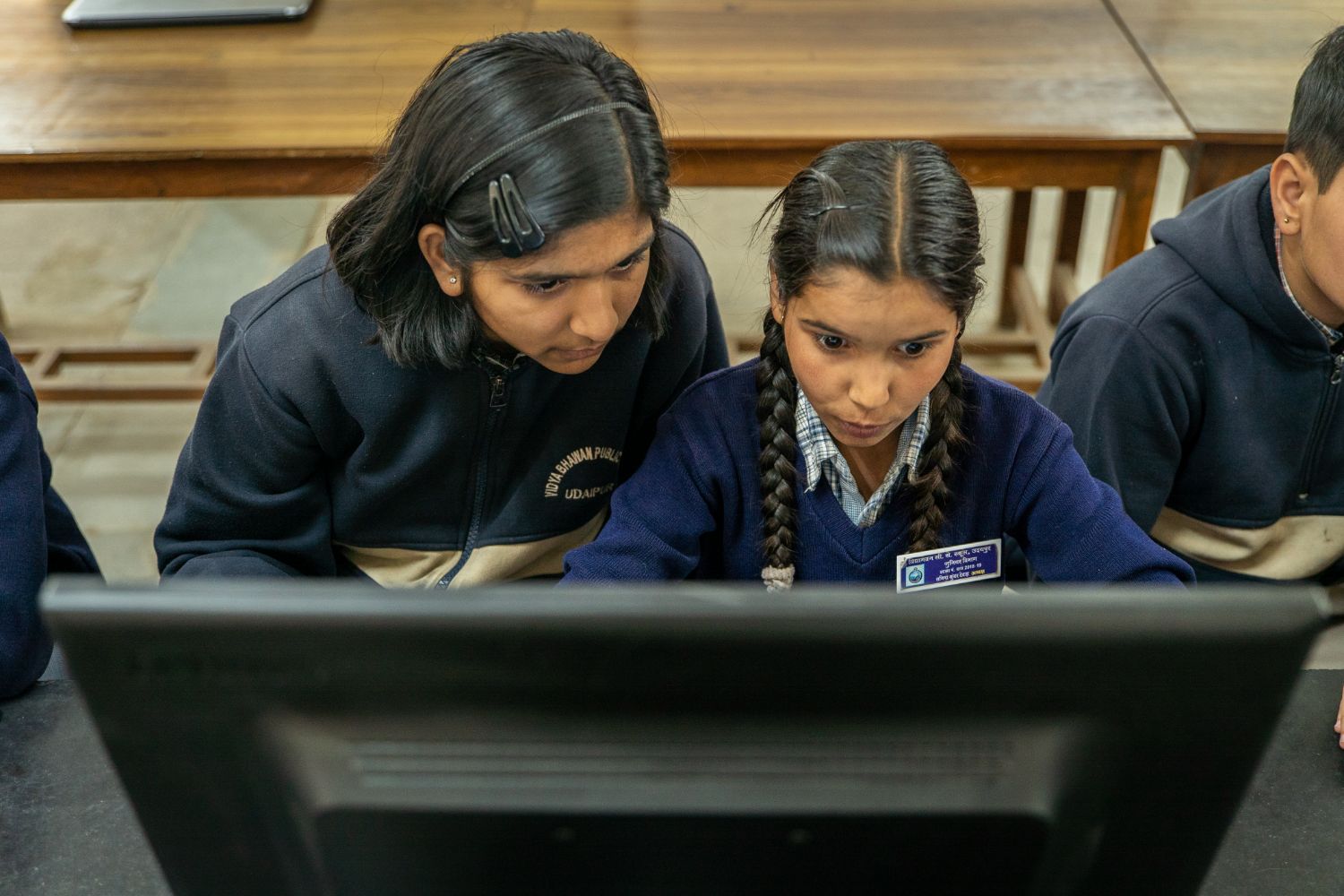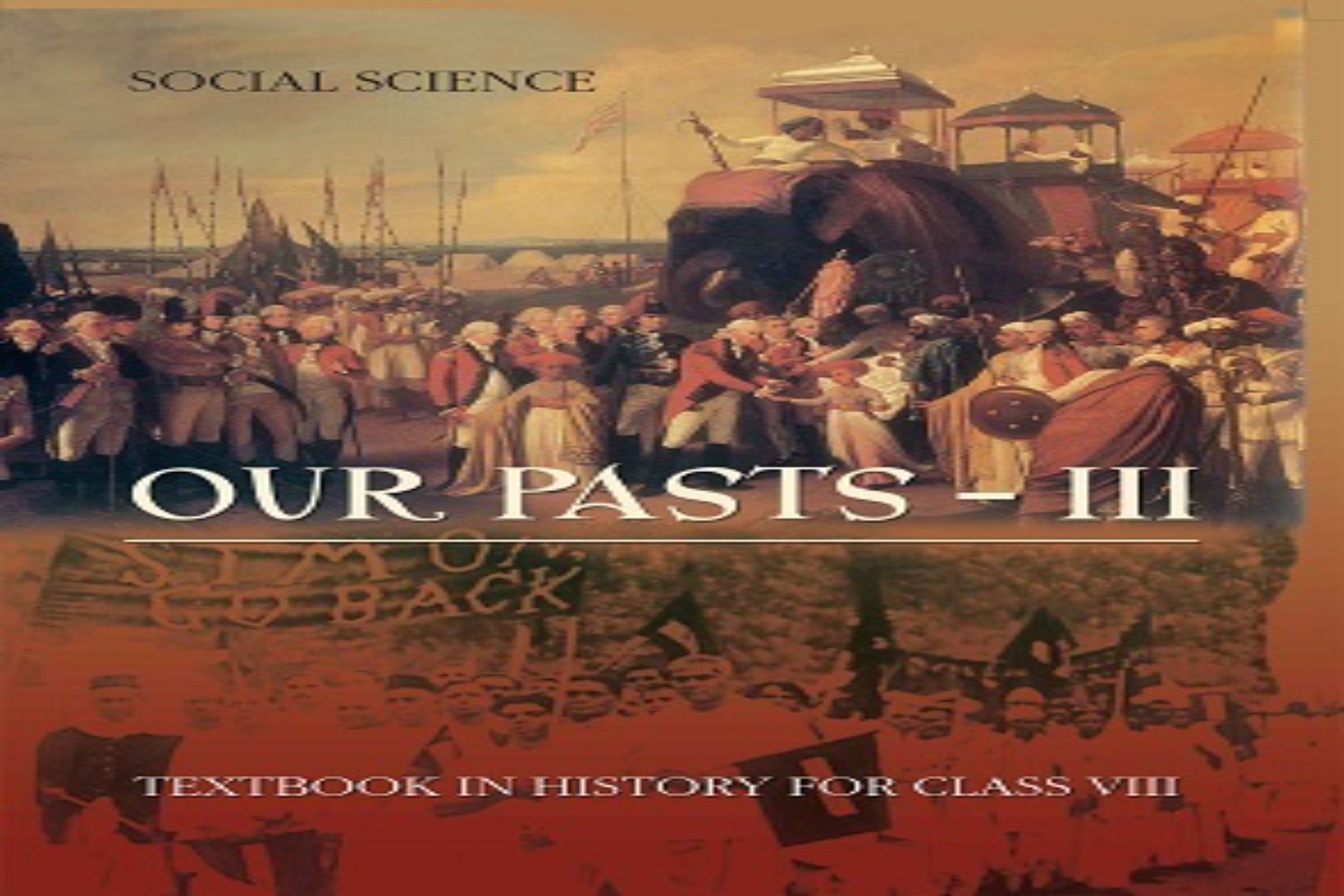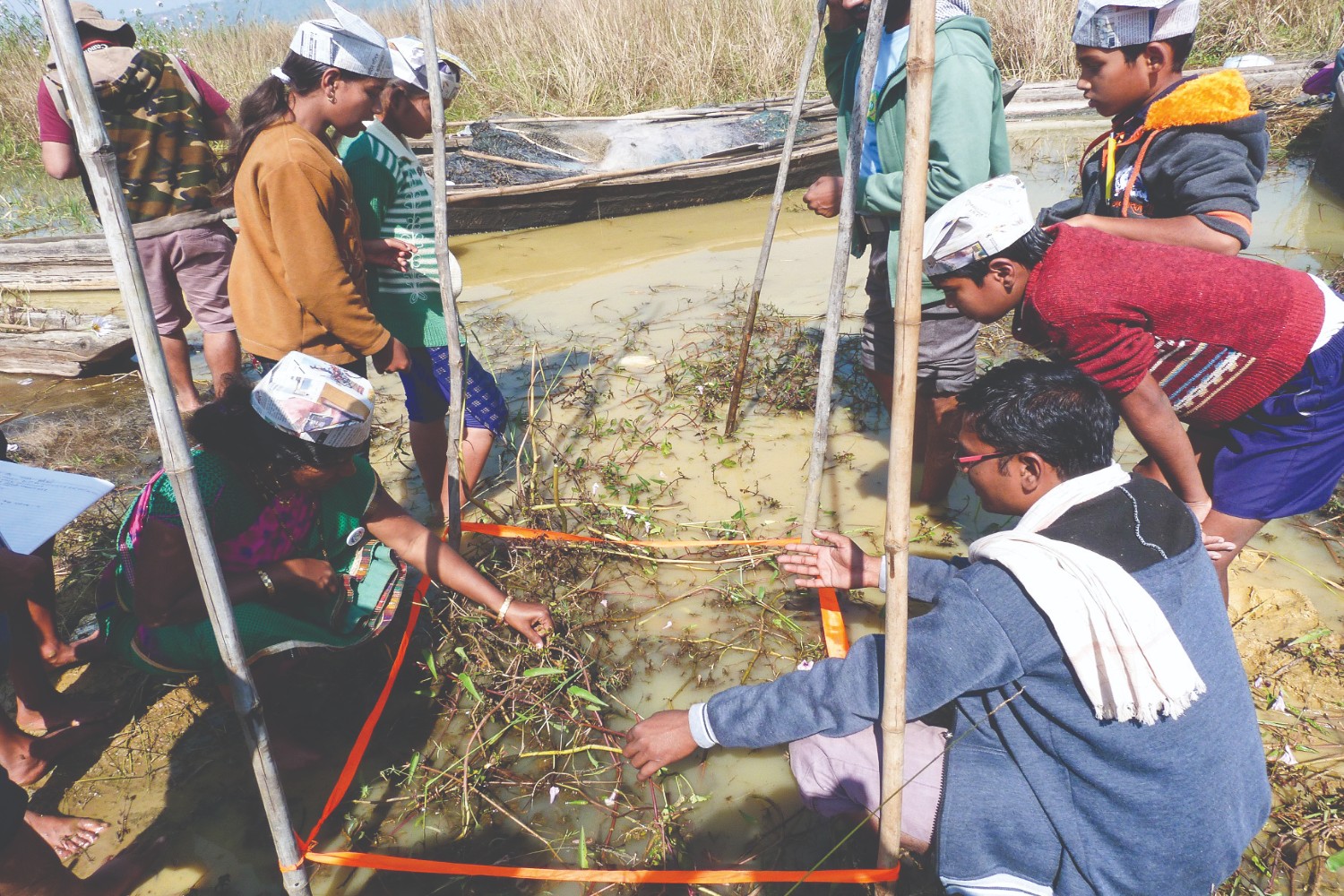Broadening access and participation in computer science education across India
In their essay, Divya Joseph and Bobby Whyte discuss ways of bridging the digital divide in and through computer science education in India by broadening access and deepening participation.

Over the past decade, the provision of computer science (CS) education informal K-12 educational settings has expanded massively across the globe. As computing, AI and other digital technologies permeate our everyday life, many have argued that access to CS education should be expanded to equip young people with vital lifelong skills to thrive in the modern economy. Towards this end, CS has been increasingly introduced through school curricula in many countries. Where some countries have included CS in their curricula for many years (e.g., Poland, Germany and Israel), others have more recently included CS in state curricula (e.g., England and Sweden) or amended existing ICT (Information & communication technologies) curricula to incorporate CS (e.g., New Zealand). Likewise, informal CS activities have become increasingly popular in after-school clubs and libraries through initiatives such as Code Club and CoderDojo.
Broad challenges remain in access and participation in CS education, including a shortage of qualified teachers, understanding what should be taught and how, and fostering interest in CS education. In many states across India, socio-economic challenges and the lack of technological infrastructure have prevented young people from accessing CS through formal education. In this article, we highlight three recent initiatives by the Raspberry Pi Foundation to broaden access and the importance of participation in CS education for young people across India.
Bridging the digital divide in under-resourced communities
India’s digital divide is made worse due to a lack of access to electricity, the internet, and digital devices. In 2017–18, only 47% of Indian households received electricity for more than 12 hours a day and only 24% of households had internet access, with the figure dropping as low as 15% in rural regions. While it is not possible for an organization to single-handedly solve these access issues, we, at Raspberry Pi Foundation, are committed to moving the needle for young people that need access to digital literacy skills the most.
Through our partnership with the Pratham Education Foundation, we have adapted the Code Club program for learners from remote, underserved communities in Uttar Pradesh, Maharashtra, Karnataka and Rajasthan to facilitate learning coding and computing in their communities. Code Club is one of Raspberry Pi Foundation’s flagship programs to introduce coding and computing to learners in a fun, safe environment. The informal ‘club’ nature of the program allows young learners, volunteers and educators to overcome the fear of coding and experiment using technologies.
Pratham provides local communities with infrastructure that includes tablets, Raspberry Pi computers connected to monitors or screens, and a WiFi connection. Learners aged 13-18 years use tablets and Raspberry Pis to learn to code. We support the local staff at Pratham through training that helps them develop their skills on the basics of coding and programming pedagogy, so that they can facilitate sessions with young learners. During our training with the staff, young adults aged 18-25 years, we found that they were committed to organizing Code Clubs in their communities, and they wanted to use our training as an opportunity to upskill themselves as well. As a result of their feedback, we are now adapting our training to include additional programming languages like HTML and basics of Python, which the Pratham staff felt would improve their chances at employability.
Supporting non-formal CS education through partnerships
With many education systems around the world struggling to recruit and train adequate numbers of CS teachers, one challenge we want to address is existing teachers’ confidence and understanding in teaching CS.
Since 2019, we have partnered with Mo School Abhiyan, an initiative of Government of Odisha (GoO), to support non-specialist high school teachers in government schools to run Code Clubs. As many teachers were non-specialists, we supported the teachers through online and in-person training sessions on the basics of Scratch, a programming language suitable for novice learners, programming pedagogy and how to run a Code Club. We also ran live-coding sessions every Friday. This gave an opportunity to interested teachers to clarify their doubts. The online sessions were supplemented through the creation of WhatsApp groups for regular support. By April 2023, over 950 code clubs had been registered. Four hundred and forty-three (443) teachers reported that they had run Code Club sessions. From this, we estimated that 32,000 young people had taken part in at least one Code Club session.
We were able to provide tailored support to teachers to develop their confidence and basic coding skills. However, we found many other systemic challenges during the implementation of the program. Since Code Club is an informal club program, teachers had to work with their head teachers to allocate time in the timetable. This proved challenging since some requirements of the timetable are dictated to the teachers by the state education department. Teachers have many non-teaching responsibilities as well. This made it difficult for them to make time.
In addition, teachers across the state continued to struggle with infrastructure issues. While the state government has mandated 10 computers for each school, most of the equipment is dated and not suitable for learning coding. This is a challenge for both students and teachers. The problem is further aggravated by intermittent electricity and internet access, making it difficult to access applications and resources online. Teachers also reported that once timetabled, they found that having just one session a week of 40 minutes was insufficient for students. Teachers seemed to be spending considerable time in revisions, as students were not getting sufficient time to practise as a result of the infrastructural issues at their schools. For a robust CS program in schools, it is important that some of these issues are tackled at the state level. The scale of the problems makes it quite challenging for a non-governmental entity to solve these.
Adopting a school to pilot a computing curriculum
The insights from the community-led informal clubs program at Pratham and educator-led clubs program at the Mo School Abhiyan helped us design our formal computing curriculum for Coding Academy, a government-led initiative in Telangana in 2023. Our vision is to create a comprehensive computing curriculum that can be used in schools across the country.
Coding Academy is an institution established by the Telangana Social Welfare Residential Educational Institutions Society department (TSWREIS) to provide opportunities for children from economically and socially backward communities to learn coding and computing. Our partnership with TSWREIS involves creating and piloting a computing curriculum adapted to the needs of young learners in Telangana. The curriculum is delivered to the students by Raspberry Pi Foundation’s instructors, who come with degrees and background in computer science and computing.
Over the course of the five-year partnership, we aim to identify non-specialist teachers at the Coding Academy. They will be trained and mentored by the instructors to deliver the computing curriculum. Moreover, we will work with the State Council of Educational Research and Training (SCERT) and other departments in the state to introduce the computing curriculum to government schools across the state.
Current and future state of CS education in India
Over 2.6 million students in India choose STEM subjects at the graduate level every year. STEM-related subjects and courses across the country have advanced, and have been refined, over the years. However, they still leave much to be desired, especially at the school education level.
National Curriculum Framework (Hyperlink for this) (or NCF) 2005 highlighted the importance of learning coding and computing. It spoke of the problem-solving strategies arising from computing and emphasized the place occupied by computers in the modern world. It acknowledged that bridging the digital divide in the country had to be prioritized before young learners around the country could be encouraged to learn coding and computing.
The pandemic further highlighted the need to bridge the digital divide. This has accelerated efforts by both government and private organizations to work towards bridging the gap. States like Delhi, Punjab and Pondicherry now claim to have computers and internet in more than 90% of their schools. This has created the potential to introduce a comprehensive coding and computing curriculum when ready.
NCF 2005 was also thoughtful in its approach in that it explicitly called out the difference between ICT and CS, while also stating that both had their place in school education. To use an analogy, while ICT is learning how to drive a car, CS is understanding how a car is built. In our experience of working with education departments and teachers across the country, we found that there is a tendency to use ICT, computer literacy, coding, programming and computing interchangeably. Most curricula across states seem to lay emphasis on computer literacy and some programming for higher grades. Unfortunately, there is very little focus on other aspects of computing and computer science.
The latest NCF (2023) does not seem to build on the thoughtful vision laid by NCF, 2005. Instead, it promotes technology only as a means to increase access to online resources, create localized content and potentially track learning achievements. The focus, therefore, seems more on students being competent but passive consumers of digital technologies rather than active, innovative creators.
Developing an understanding of CS and using technologies to solve real-world problems is key to economic and social change. There are many options for those who can afford private, expensive courses on coding and programming. However, for the underserved, low-resourced communities whose children study in government schools across the country, the options are limited. The importance of learning computing is increasingly apparent. Even the renowned physicist Stephen Hawking recognized this when he said, “Whether you want to uncover the secrets of the universe, or you just want to pursue a career in the 21st century, basic computer programming is an essential skill to learn”.
Apparent apathy from policymakers and their failure to think deeply about the skills required for children in the future has resulted in a lack of opportunities for children to learn these critical skills. As demand grows for graduates qualified in computer science, AI, and related fields (e.g., data science), there exists a current and pressing need to provide young people in India with opportunities to develop coding skills and to harness computing to tackle the problems of the future. Through our partnership work across India, we hope to advance this mission.
References
- Bhattacharya, P. and Joshi, S. and Bandyopadhyay, S. and Mittal, R. (2022). “Virtual Computer Science Education in India: Challenges and Opportunities.” Proceedings of the International Conference on Best Innovative Teaching Strategies (ICON-BITS 2021).
- Coventry, F. (2023). “Introducing Code Clubs in eastern India: 32,000 more young digital makers.” Raspberry Pi Foundation.
- Joseph, D. (2022). “Bringing digital skills to disadvantaged children across India.” Raspberry Pi Foundation.
- NCERT (2005). “National Curriculum Framework.” Delhi: Government of India.
- NCERT (2023). “National Curriculum Framework for School Education.” Delhi: Government of India.
- McCarthy, N. (2017, February 2). “The Countries With The Most STEM Graduates.” Forbes.Com.
- MSPI (2020). “Household Social Consumption on Education in India.” Delhi: Government of India.
- Vahrenhold, J., Cutts, Q., and Falkner, K. (2019). “Schools (K–12),” in The Cambridge Handbook of Computing Education Research, Cambridge University Press, pp. 547–583.
- Vegas, E., Hansen, M., & Fowler, B. (2021). “Building skills for life: how to expand and improve computer science education around the world.” The Brookings Institution. Center for Universal Education Center for Universal Education.




No approved comments yet. Be the first to comment!